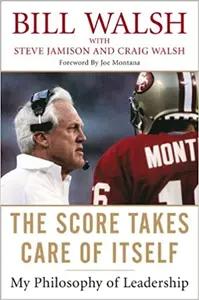Why Globalization Works
By Martin Wolf
Category
EconomicsRecommended by
"Why Globalization Works" by Martin Wolf presents a comprehensive analysis of the benefits and challenges that arise from the process of globalization. Wolf, a renowned economics journalist, provides a compelling argument for why globalization is crucial for global economic prosperity.
In concise and precise language, the book delves into the various facets of globalization, including trade, finance, immigration, and technology. Wolf examines the historical context of globalization, scrutinizing the transformation it has brought to societies and economies around the world.
With a keen eye for both the positive and negative impacts, Wolf highlights how globalization has led to economic growth, job creation, and poverty reduction in many countries. He presents evidence demonstrating that globalization has been a driving force for innovation, efficiency, and broader access to goods and services, benefiting both developed and developing nations.
Furthermore, Wolf addresses the concerns and criticisms surrounding globalization. He acknowledges the risks of inequality and the challenges faced by certain industries, but argues that these issues can be addressed through smart policies and inclusive approaches. The book emphasizes the importance of domestic reforms and global cooperation to ensure that the benefits of globalization are shared by all.
Through well-researched insights, expert analysis, and accessible writing, "Why Globalization Works" offers readers a balanced understanding of this complex phenomenon. It serves as a vital resource for policymakers, economists, and anyone interested in the interconnected nature of our globalized world.
In conclusion, "Why Globalization Works" provides a compelling case for the far-reaching benefits of globalization, while acknowledging its imperfections and proposing ways to mitigate its challenges. Wolf's thought-provoking arguments make this book an indispensable read for anyone seeking a comprehensive understanding of the impact and potential of globalization.
In concise and precise language, the book delves into the various facets of globalization, including trade, finance, immigration, and technology. Wolf examines the historical context of globalization, scrutinizing the transformation it has brought to societies and economies around the world.
With a keen eye for both the positive and negative impacts, Wolf highlights how globalization has led to economic growth, job creation, and poverty reduction in many countries. He presents evidence demonstrating that globalization has been a driving force for innovation, efficiency, and broader access to goods and services, benefiting both developed and developing nations.
Furthermore, Wolf addresses the concerns and criticisms surrounding globalization. He acknowledges the risks of inequality and the challenges faced by certain industries, but argues that these issues can be addressed through smart policies and inclusive approaches. The book emphasizes the importance of domestic reforms and global cooperation to ensure that the benefits of globalization are shared by all.
Through well-researched insights, expert analysis, and accessible writing, "Why Globalization Works" offers readers a balanced understanding of this complex phenomenon. It serves as a vital resource for policymakers, economists, and anyone interested in the interconnected nature of our globalized world.
In conclusion, "Why Globalization Works" provides a compelling case for the far-reaching benefits of globalization, while acknowledging its imperfections and proposing ways to mitigate its challenges. Wolf's thought-provoking arguments make this book an indispensable read for anyone seeking a comprehensive understanding of the impact and potential of globalization.
Share This Book 📚
More Books in Economics

Principles for Dealing With The Changing World Order
Ray Dalio

The Rational Optimist
Matt Ridley

The Bitcoin Standard
Saifedean Ammous

Economics in One Lesson
Henry Hazlitt

The Ascent of Money
Niall Ferguson

Enlightenment Now
Steven Pinker

The Rise of the Rest
Steve Case

The Road to Serfdom
F.A. Hayek

The Wealth of Nations
Adam Smith

Capital In The 21st Century
Thomas Piketty

Check Your Financial Privilege
Alex Gladstein

Dealing with China
Henry Paulson

Debt
David Graeber

Human Action
Ludwig Von Mises

The Future of Capitalism
Paul Collier

The Prize
Daniel Yergin

The Wealth and Poverty of Nations
David Landes

Thinking In Systems
Donella H. Meadows

Trade Is Not A Four Letter Word
Fred Hochberg

Why Nations Fail
Daron Acemoglu

A Great Leap Forward?
John Mauldin & Worth Wray

A Guide To Econometrics
Peter E. Kennedy

Adaptive Markets
Andrew Lo

Age Of Ambition
Evan Osnos

An Apology for the Builder
Nicholas Barbon

Broken Money
Lyn Alden

Bureaucracy
Ludwig Von Mises

Capitalism Without Capital
Jonathan Haskel & Stian Westlake

Central Banking 101
Joseph Wang

Complexity and the Economy
W. Brian Arthur
Popular Books Recommended by Great Minds 📚

Rework
Jason Fried

Destined For War
Graham Allison

Who We Are and How We Got Here
David Reich

The Score Takes Care of Itself
Bill Walsh

American Kingpin
Nick Bilton

1984
George Orwell

Dune
Frank Herbert

The Autobiography of Benjamin Franklin
Benjamin Franklin

Can't Hurt Me
David Goggins

The Psychology of Money
Morgan Housel

Against The Gods
Peter Bernstein

Creativity, Inc.
Ed Catmull

Snow Crash
Neal Stephenson

Zero to One
Peter Thiel

When Genius Failed
Roger Lowenstein

Surely You're Joking Mr. Feynman
Richard Feynman

Crossing the Chasm
Geoffrey Moore

Extreme Ownership
Jocko Willink

Atlas Shrugged
Ayn Rand

The Prince
Nicolo Machiavelli

Sapiens
Yuval Noah Harari

The Hitchhikers Guide to the Galaxy
Douglas Adams

The Lean Startup
Eric Reis

Mindset
Carol Dweck

Behind the Cloud
Marc Benioff

Give and Take
Adam Grant

Economics in One Lesson
Henry Hazlitt

The Almanack of Naval Ravikant
Eric Jorgenson

Einstein
Walter Isaacson

The Rational Optimist
Matt Ridley
